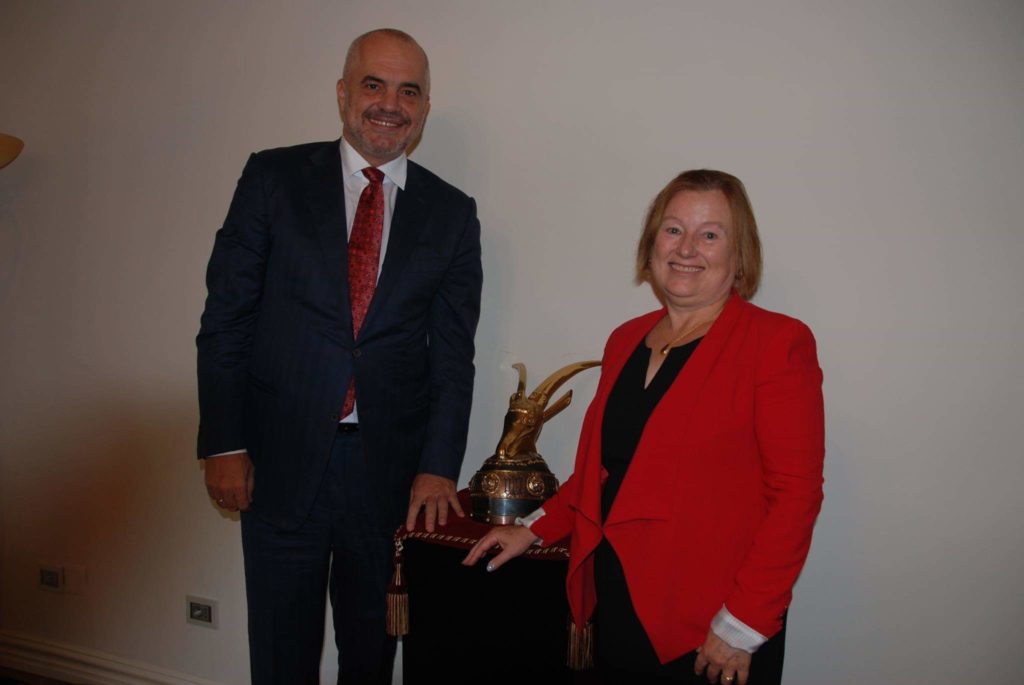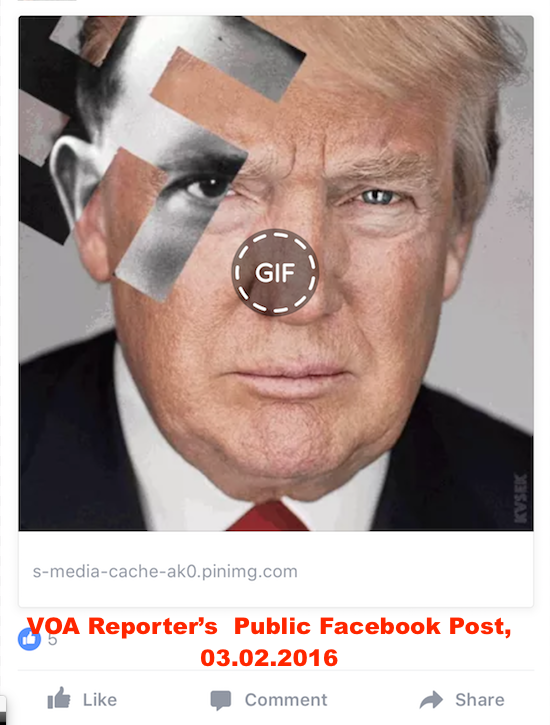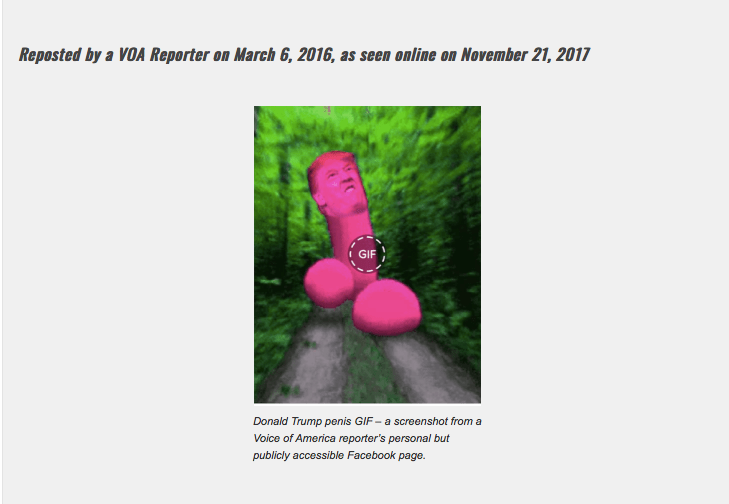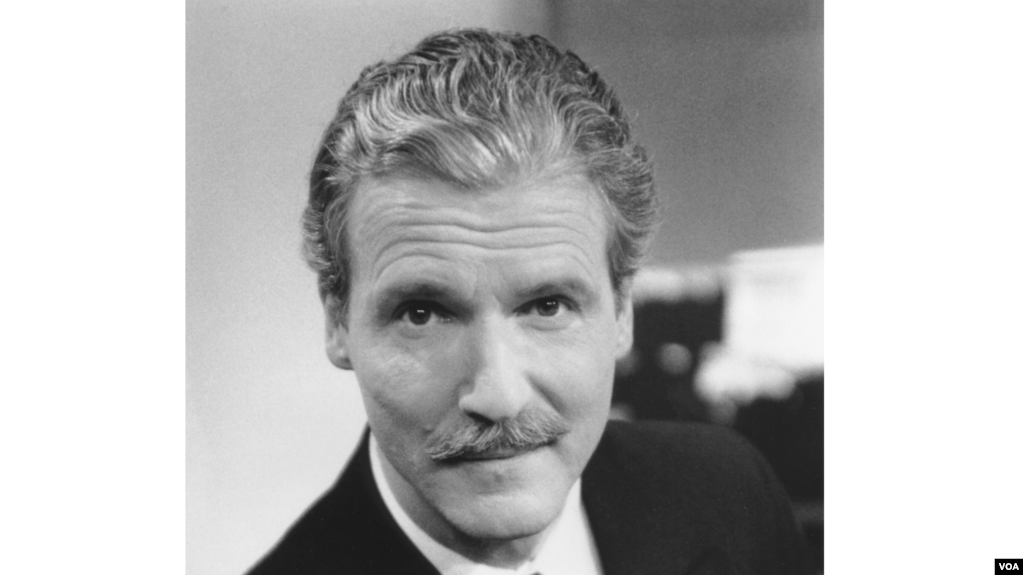USAGM Watch Commentary
In a message today to Voice of America (VOA) staff, new VOA director Robert Reilly, recently appointed by U.S. Agency for Global Media (USAGM) CEO Michael Pack, promised that he will follow the VOA Charter and “will resist any political pressure from above that would compromise our mission and the integrity of our news operations.” In a reference to wide-spread VOA Charter violations under his predecessor Amanda Bennett who served under Pack’s predecessor, John F. Lansing (now CEO of NPR), Reilly also stressed that he will “not allow personal or political biases to appear from below in our news reports or other programming.”
Over the years, I have written hundreds of articles and a number of books and monographs on a wide array of subjects. They are irrelevant to my duties as VOA Director, with the possible exception of those about VOA and the broader subject of public diplomacy. A VOA Director, like any journalist, should leave his or her personal opinions at the door. On the wall, we have the VOA Charter that spells out our obligations: objectivity, comprehensiveness and accuracy. I pledge to follow it and will resist any political pressure from above that would compromise our mission and the integrity of our news operations. But I will also not allow personal or political biases to appear from below in our news reports or other programming.
Amanda Bennett attacked Reilly last week in a Washington Post op-ed, calling him dangerous. She has strong professional and personal links to the newspaper which refuses to publish opinions of critics of Bennett’s management of the Voice of America which extended nearly four years into the Trump administration. She was appointed VOA director in 2016 during the Obama administration.
Reilly is a dangerous choice. His views are not conservative — they are extreme. As head of one of America’s most powerful voices to the world, he risks causing reputational damage that will be hard to repair.
According to NPR reporter, David Folkenflik, “A group of VOA whistleblowers sent a letter to Reilly’s boss, US Agency for Global Media CEO Michael Pack, urging rescinding the appointment.” Folkenflik tweeted that “It was sent by their lawyer, David Seide of the non profit Government Accountability Project.” The group may include managers who were in charge when multiple violations of the VOA Charter occurred between 2016 and 2020.
During Bennett’s and Lansing tenure, VOA editors and reporters, in violation of the VOA Charter, VOA Journalistic Code and VOA social media policies, frequently posted on social media comments and memes attacking Trump and his supporters. They also posted biased VOA news reports. These included an anti-Trump VOA Ukrainian Service 2016 campaign ad in which Trump was called by a Hollywood actor “pig,” “dog,” “mutt” and similar names. For the first time in VOA’s history, while Bennett was ultimately in charge, physical violence against an American politician was condoned in VOA posted media content.
In 2017, Bennett, then the VOA director, visited Albania with VOA Eurasia Division director Elez Biberaj who later briefly served as VOA acting director under Pack and could not prevent the VOA Urdu Service from posting a 2020 pro-Biden campaign ad, but removed it and criticized it after it was brought to his attention. In September 2017, Bennett met in Tirana with Albanian Prime Minister Edi Rama who in 2016 publicly interfered in U.S. elections by urging Americans not to vote for Trump.

A small sampling of public social media posts by several VOA reporters, which violate VOA social media policies, shows a strong partisan bias. Some of these were still being posted in 2019.

VOA reporter’s public 2016 Facebook post. 
VOA reporter’s public 2016 Facebook post. 
Screenshot (edited) taken on 2019-04-05 of a 2016 video reposted on Facebook by a person believed to be a VOA reporter. 
Screenshot 2019-04-05 of a 2016 Facebook post attributed to a VOA reporter. 
Meme reposted by a VOA reporter in June 2017 on a personal but publicly accessible Facebook page where the reporter’s employment with the Voice of America is stated.
END OF USAGM WATCH COMMENTARY
Dear Colleagues,
It is a great privilege for me to return as Director of the Voice of America. I am very grateful to CEO Michael Pack for giving me the opportunity to serve again. I look forward to working with you in fulfilling our unique mission of explaining America to the world. The Declaration of Independence was the first public diplomacy document of the United States. It was addressed out of “a decent respect to the opinions of mankind” to the entire world. That decent respect is what VOA continues to show. What a privileged mission we perform.
Having lived and worked overseas, I am familiar with the distorted views of the United States that many people have formed, not only from foreign propaganda and disinformation, but from some American popular entertainment and the almost constant self-criticism in which the American people are engaged. The latter is a sign of a healthy democracy and a source of our strength, but our audiences need to understand the broader framework within which this takes place. That is why the VOA Charter requires us to represent America in a balanced and comprehensive way. It is vitally important that VOA fosters an understanding of American institutions and the principles behind them. No less important is our obligation to “present the policies of the United States clearly and effectively.”
Over the years, I have written hundreds of articles and a number of books and monographs on a wide array of subjects. They are irrelevant to my duties as VOA Director, with the possible exception of those about VOA and the broader subject of public diplomacy. A VOA Director, like any journalist, should leave his or her personal opinions at the door. On the wall, we have the VOA Charter that spells out our obligations: objectivity, comprehensiveness and accuracy. I pledge to follow it and will resist any political pressure from above that would compromise our mission and the integrity of our news operations. But I will also not allow personal or political biases to appear from below in our news reports or other programming.
I firmly believe that VOA should not be an echo chamber for American domestic media, which is already largely available overseas on the internet. We have a different job. We need to offer our audiences what is otherwise not available to them. As I review what VOA is currently doing, the question foremost in my mind will be: what is the VOA value-added that will attract and serve our foreign audiences. What are we giving them that they cannot get elsewhere? Otherwise, why should they watch or listen?
I am pleased that some people whom I knew from my earlier tenure as VOA Director or during my 10 years in the Office of Policy remain here. I look forward to working with them again, as well as with those of you I hope to meet soon. Since many of you do not know me, I thought I would send along a link to a TV interview made one week into my earlier term. (https://www.c-span.org/video/?166743-1/voice-america) I include it because what I said then largely applies now, but for the change in the challenges that the United States currently faces.
I look forward to meeting those challenges with you.
Robert Reilly
